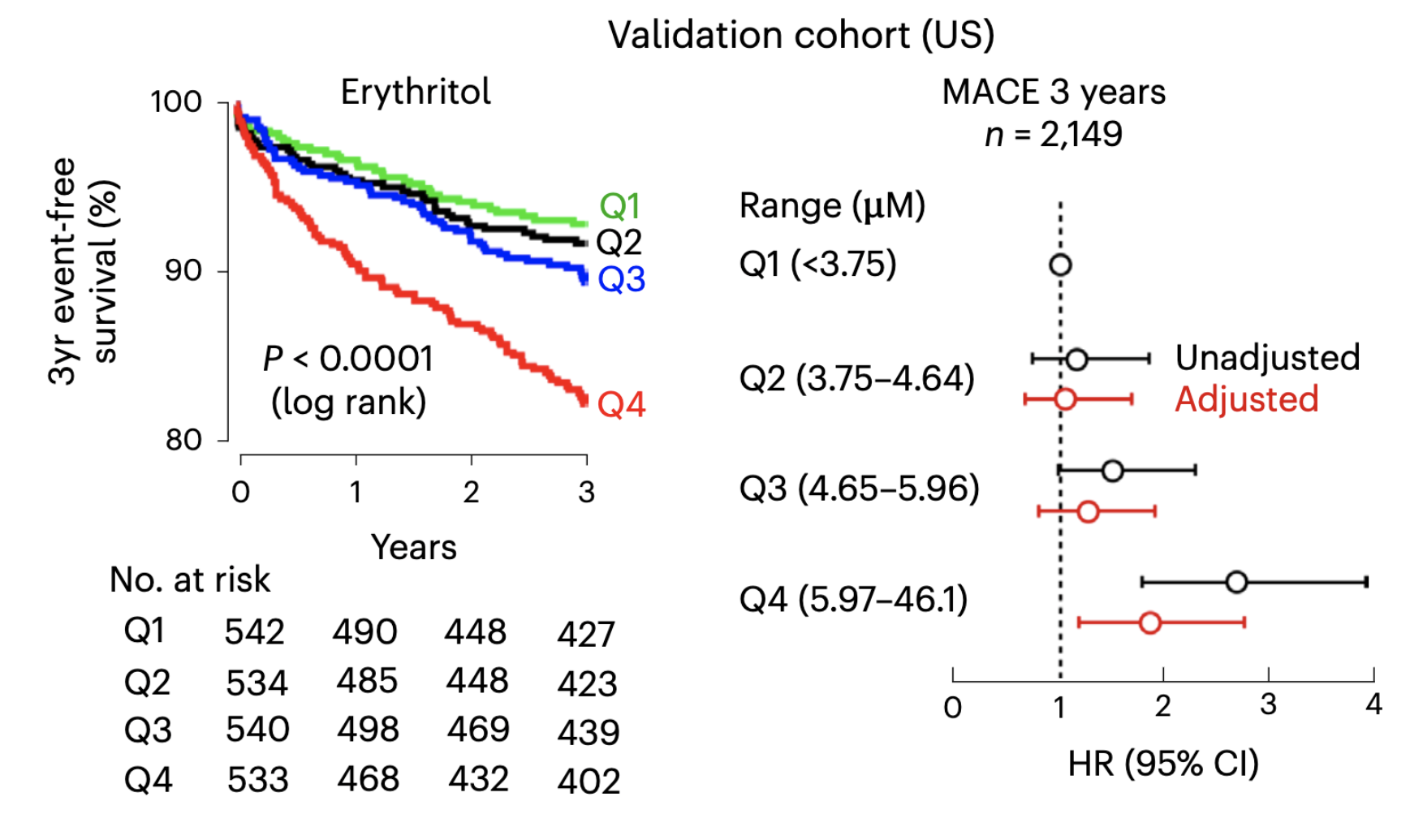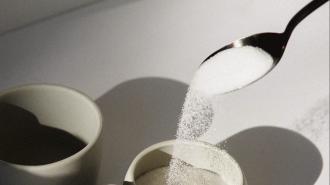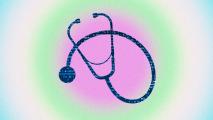Sugar-replacing sweeteners can’t catch a break. First it was aspartame, then it was sucralose, now it’s erythritol. One by one, a pesky study comes along and questions their safety. But there were good reasons to be skeptical of the prior research on aspartame and sucralose, and there’s good reason now to be skeptical of the new study on erythritol.
First, what is erythritol? It’s a non-nutritive sweetener (meaning it doesn’t get used by the body for energy) found naturally in small amounts in fruits like grapes, peaches, and pears, and in other foods like mushrooms and soy sauce. It’s about 70% as sweet as sugar, making it a solid substitute for everyone’s favorite guilty eating pleasure. Erythritol can be found in a lot of ketogenic-diet products like zero-sugar cookies, bars, syrups, and monk fruit extract.
Regular consumers of erythritol were no doubt enjoying their reduced-sugar lifestyles until late February, when a large team of researchers mainly based out of the Cleveland Clinic published a study in Nature Medicine revealing a link between higher levels of the sweetener in blood plasma and an increased risk of death and cardiovascular events like heart attack and stroke. The scientists followed 2,149 subjects from the U.S. seeking medical evaluation for heart issues as well as 833 European participants seeking the same care. They found that over three years, the participants with the top quartile of erythritol blood plasma levels were about twice as likely to have a major adverse cardiovascular event (MACE, which included stroke, heart attack, or death) compared to those in the lowest quartile.

This concerning finding is shown above in the Kaplan-Meier curve, a very common statistical technique which estimates the “survival” of people in the study. In this case, “survival” doesn’t necessarily mean death; instead, it means anyone who has not yet suffered a stroke or heart attack or died. In other words, if somebody has a stroke but is still alive, for the purposes of this study, they are no longer considered to have “survived.”
Over three years, fewer people in the highest quartile (Q4) — that is, those who had erythritol blood plasma levels between 6 and 46 μM (micromolar) — “survived” compared to people in the lowest quartile (Q1) — that is, those who had erythritol blood plasma levels less than 3.75 μM. Put another way, people in the Q4 group were likelier to have a heart attack or stroke or die compared to the people in the Q1 group.
In another experiment, the researchers showed that erythritol leads to increased blood clotting, potentially clogging blood vessels. They also revealed in a different experiment that consuming a drink containing 30 grams of erythritol can spike blood plasma levels up to 10,000 μM before settling back down to below 6 μM a couple days later. So a person doesn’t need to consume much erythritol to spike blood levels to what the authors would consider a health risk.
Together, these data seem pretty convincing that we should reconsider consuming lots of erythritol, but outside experts aren’t so sure.
Analyzing the study on a recent episode of the Skeptics’ Guide to the Universe, Dr. Steven Novella, a neurologist at Yale University, warned that the research doesn’t establish cause and effect, meaning that it’s just as likely that people who consume lots of erythritol are already at higher risk of cardiovascular disease, perhaps because they are overweight and trying to diet. Novella’s co-host, Dr. F. Perry Wilson, a nephrologist at Yale University, added that we shouldn’t be thinking about the results of the study in a vacuum. Even if erythritol does truly increase the risk of heart attacks and strokes, it still is replacing sugar, which almost certainly has more pernicious health effects.
Writing for the American Council for Science and Health, Dr. Chuck Dinerstein pointed out an even greater reason to be skeptical of the new study. Prior research has found that the body converts extra glucose into erythritol. So it’s possible, even likely, that people who have higher blood plasma levels of erythritol have those high levels because they are eating too much sugar. Since the new study didn’t control for subjects’ diets, it can’t be ruled out that the research actually shows that people who eat more sugar had increased rates of heart attack and stroke, which wouldn’t be surprising at all.
This excerpt was reprinted with permission of Big Think, where it was originally published.






